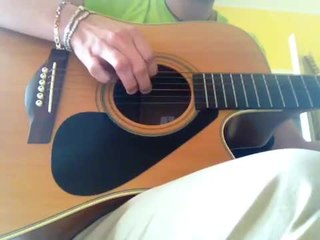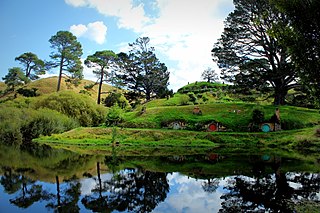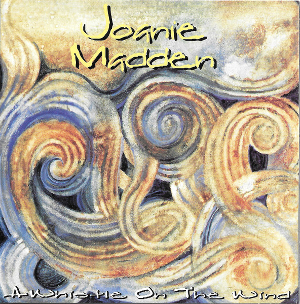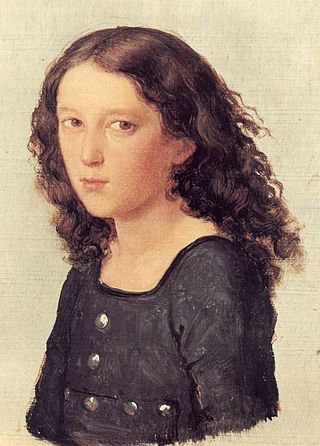Related Research Articles

Jazz guitar may refer to either a type of electric guitar or a guitar playing style in jazz, using electric amplification to increase the volume of acoustic guitars.

The tin whistle, also known as the penny whistle, is a simple six-holed woodwind instrument. It is a type of fipple flute, putting it in the same class as the recorder, Native American flute, and other woodwind instruments that meet such criteria. A tin whistle player is called a whistler. The tin whistle is closely associated with Irish traditional music and Celtic music. Other names for the instrument are the flageolet, English flageolet, Scottish penny whistle, tin flageolet, or Irish whistle.

Bag End is the underground dwelling of the Hobbits Bilbo and Frodo Baggins in J. R. R. Tolkien's fantasy novels The Hobbit and The Lord of the Rings. From there, both Bilbo and Frodo set out on their adventures, and both return there, for a while. As such, Bag End represents the familiar, safe, comfortable place which is the antithesis of the dangerous places that they visit. It forms one end of the main story arcs in the novels, and since the Hobbits return there, it also forms an end point in the story circle in each case.

Cajun music, an emblematic music of Louisiana played by the Cajuns, is rooted in the ballads of the French-speaking Acadians of Canada. Although they are two separate genres, Cajun music is often mentioned in tandem with the Creole-based zydeco music. Both are from southwest Louisiana and share French and African origins. These French Louisiana sounds have influenced American popular music for many decades, especially country music, and have influenced pop culture through mass media, such as television commercials.
A variety of musical terms are encountered in printed scores, music reviews, and program notes. Most of the terms are Italian, in accordance with the Italian origins of many European musical conventions. Sometimes, the special musical meanings of these phrases differ from the original or current Italian meanings. Most of the other terms are taken from French and German, indicated by Fr. and Ger., respectively.

Accompaniment is the musical part which provides the rhythmic and/or harmonic support for the melody or main themes of a song or instrumental piece. There are many different styles and types of accompaniment in different genres and styles of music. In homophonic music, the main accompaniment approach used in popular music, a clear vocal melody is supported by subordinate chords. In popular music and traditional music, the accompaniment parts typically provide the "beat" for the music and outline the chord progression of the song or instrumental piece.

"Into the West" is a song performed by Annie Lennox, and the end-credit song of the 2003 film The Lord of the Rings: The Return of the King. It was written by Lennox, Return of the King producer and co-writer Fran Walsh, and composed and co-written by the film's composer Howard Shore. The song plays in full during the closing credits of Return of the King, although instrumental music from the song plays at other points during the film itself. “Into the West" was acclaimed by music critics and won Academy Award for Best Original Song, the Golden Globe Award for Best Original Song, and the Grammy Award for Best Song Written for Visual Media.

Celtic music is primarily associated with the folk traditions of Ireland, Scotland, Brittany and Wales, as well as the popular styles derived from folk culture. In addition, a number of other areas of the world are known for the use of Celtic musical styles and techniques, including Newfoundland, and much of the folk music of Canada's Maritimes, especially on Cape Breton Island and Prince Edward Island.

The Unseen Stream is a progressive classical album by Troy Donockley. This was his first solo outing and was released in 1998.
The music of The Lord of the Rings film series was composed, orchestrated, conducted and produced by Howard Shore between 2000 and 2004 to support Peter Jackson's film trilogy based on J. R. R. Tolkien's fantasy novel of the same name. It is notable in terms of length of the score, the size of the staged forces, the unusual instrumentation, the featured soloists, the multitude of musical styles and the number of recurring musical themes used.
Musica ricercata is a set of eleven pieces for piano by György Ligeti. The work was composed from 1951 to 1953, shortly after the composer began lecturing at the Budapest Academy of Music. The work premiered on 18 November 1969 in Sundsvall, Sweden. Although the ricercata is an established contrapuntal style, Ligeti's title should probably be interpreted literally as "researched music" or "sought music". This work captures the essence of Ligeti's search to construct his own compositional style ex nihilo, and as such presages many of the more radical directions Ligeti would take in the future.

Irish traditional music is a genre of folk music that developed in Ireland.

Guitar picking is a group of hand and finger techniques a guitarist uses to set guitar strings in motion to produce audible notes. These techniques involve plucking, strumming, brushing, etc. Picking can be done with:
Excursions, Op. 20, is the first published solo piano piece by Samuel Barber. Barber himself explains:
These are ‘Excursions’ in small classical forms into regional American idioms. Their rhythmic characteristics, as well as their source in folk material and their scoring, reminiscent of local instruments are easily recognized.

The Shire is a region of J. R. R. Tolkien's fictional Middle-earth, described in The Lord of the Rings and other works. The Shire is an inland area settled exclusively by hobbits, the Shire-folk, largely sheltered from the goings-on in the rest of Middle-earth. It is in the northwest of the continent, in the region of Eriador and the Kingdom of Arnor.

Whistle on the Wind is the first solo album by flute and tin whistle player Joanie Madden.

The Concerto for Piano, Violin, and Strings in D minor, MWV O4, also known as the Double Concerto in D minor, was written in 1823 by Felix Mendelssohn when he was 14 years old. This piece is Mendelssohn's fourth work for a solo instrument with orchestral accompaniment, preceded by a Largo and Allegro in D minor for Piano and Strings MWV O1, the Piano Concerto in A Minor MWV O2, and the Violin Concerto in D minor MWV O3. Mendelssohn composed the work to be performed for a private concert on May 25, 1823 at the Mendelssohn home in Berlin with his violin teacher and friend, Eduard Rietz. Following this private performance, Mendelssohn revised the scoring, adding winds and timpani and is possibly the first work in which Mendelssohn used winds and timpani in a large work. A public performance was given on July 3, 1823 at the Berlin Schauspielhaus. Like the A minor piano concerto (1822), it remained unpublished during Mendelssohn's lifetime and it wasn't until 1999 when a critical edition of the piece was available.
John Mock is an American multi-instrumentalist, composer, arranger, producer, and photographer with a particular interest in the topic of maritime history and culture.
The music of the American fantasy television series The Lord of the Rings: The Rings of Power is primarily composed by Bear McCreary. The series is based on J. R. R. Tolkien's history of Middle-earth, primarily material from the appendices of the novel The Lord of the Rings (1954–55). It is set thousands of years before the novel and depicts the major events of Middle-earth's Second Age. The series was developed by J. D. Payne and Patrick McKay for the streaming service Amazon Prime Video.
The music of The Lord of the Rings film series, composed by Howard Shore to accompany Peter Jackson's films, exists in multiple recordings. It was heard by cinema audiences in the "theatrical" version, also released on DVD. Three single-disc albums were then released, forming briefer concert-pieces that broadly aligned with the narrative content of each film. Limited Deluxe CD versions contained additional bonus tracks. Extended versions of the films were released on DVD, with additional scenes and their accompanying music. A multi-disc set, The Complete Recordings, covered the entire score of the extended versions of the films on CD. A CD, The Rarities Archives, accompanied a 2010 book by Doug Adams. Finally, Shore edited The Lord of the Rings Symphony in six movements from the score, for concert performance.
References
- 1 2 3 4 5 6 7 8 Marillyn Miller, A Magpie's Nest Archived 2019-06-12 at the Wayback Machine , Concerning Hobbits.
- ↑ Marilyn Miller, A Magpie's Nest Archived 2019-06-14 at the Wayback Machine , Instruments.
- 1 2 Eric Rawlins, Musical themes in the Lord of the Rings Archived 2019-06-06 at the Wayback Machine .
- 1 2 Adams, Doug, The Annotated Score: Fellowship of the Ring Archived 2018-07-30 at the Wayback Machine .
- ↑ Pentreath, Rosie (12 March 2020). "The Lord of the Rings soundtrack: all you need to know about Howard Shore's score". Classic FM. Retrieved 10 April 2020.